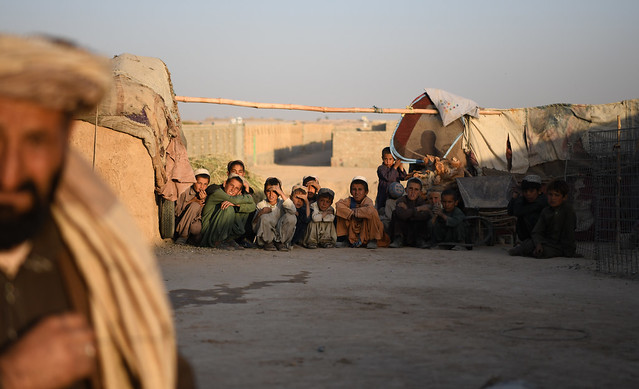Adapting targeted support to Kuchi pastoralists in Afghanistan for COVID-19

Kuchi pastoralists, numbering around 2.4 million people in Afghanistan, are one of the region’s most vulnerable groups. Their condition has since been exacerbated by COVID-19 and containment measures related to the pandemic. As part of its emerging COVID-19 response, the Food and Agriculture Organization of the United Nations (FAO) in Afghanistan has taken their unique needs into account in their intervention and re-programming design, which addresses both direct and secondary effects of the virus.
Activities are spread across different project streams and intervention typologies, some that predate the global COVID-19 crisis and others recently developed to address specific challenges posed by the pandemic as well as related restrictions. They include a modified livestock protection package to include the distribution of Personal Protective Equipment (PPE) and hygiene kits, conditional cash transfers targeting herders and their families, support for the COVID-19-safe functioning of livestock markets and on-the-ground sensitization activities, the dissemination of RCCE and IEC materials, and contingency planning for the Kuchis’ safe transhumance to winter pastures.
The interventions can be replicated in contexts where there are nomadic and semi-nomadic communities and where livestock keeping forms a significant part of local livelihoods. While short-term shocks to herding communities have been addressed with feed distribution and access to veterinary services, among other inputs, the effects of the COVID-19 crisis have only intensified the underlying vulnerabilities of Kuchi pastoralists. Going forward, more work will also be needed to amplify ongoing interventions that address these deeper drivers of vulnerability.
Pour laisser vos commentaires, rejoignez la communauté KORE


